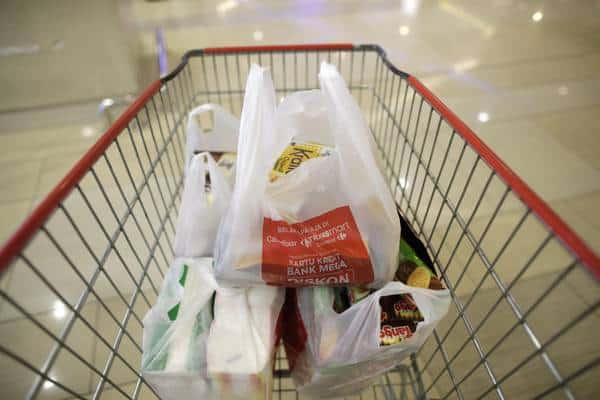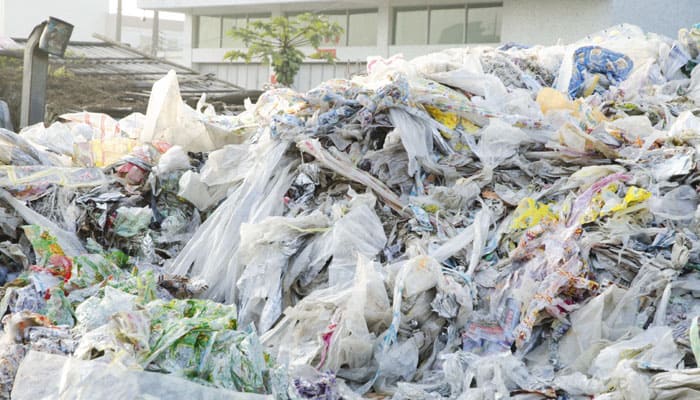
Plastic bags may be convenient and easy to use, but they absolutely devastate the environment as they last for hundreds of years. Not only do the thin bags leach chemicals into the environment when discarded, they clog waterways, suffocate animals and create unsightly pollution. It’s because of these reasons and more that a number of countries and territories have banned the use of single-use plastic bags. As of march 1, 2017, it is now impossible to obtain a disposable plastic bag from a supermarket in Tunisia.
As The Arab Weekly shares, citizens in Tunisia collectively use one billion plastic bags each year, which generates 10,000 tons of waste. Supermarkets are responsible for handing out approximately one-third of those bags (315 million), which is why consumers are now expected to bring their own reusable bags to the store when shopping for groceries.
The Ministry of Local Affairs and Environment signed an agreement with main supermarket chains, including Carrefour and Monoprix, to reach a solution that would not completely disrupt business. Tunisian Environment Minister, Riadh Mouakher, told the press:
“Our negotiations with supermarket managers did not take much time. In fact, they said yes to our proposal in record time. Citizens will have to change their habits and become aware of the importance of preserving the environment.”
So that the economy will not be adversely affected, factories that previously manufactured single-use plastic bags will now be directed to produce heavier-duty plastic bags (more than 50 microns) which can be sold in supermarkets (rather than being handed out for free, encouraging their use) along with cloth bags. Officials hope that the initiative encourages shoppers to bring reusable bags or traditional Tunisian baskets called “koffa” that were once relied on for shopping.

While plastic in any form is outdated and detrimental to the environment, the idea of selling heavy-duty plastic bags is that consumers will re-use them. And, if discarded, they will not blow around in the wind or be mistaken as food by wildlife.
It is pertinent to note that there is an inconsistency to the ban, as small retailers and produce stands are not affected by the new ruling. Some even accuse supermarkets of making a profit by selling heavier plastic bags which, if discarded, will still negatively impact the environment. According to Adnen Ben Haj, president and founder of the Association Tunisienne pour la Nature et Développement Durable, the main issue is that few Tunisian households recycle. He commented:
“Compared to other countries, I think the waste management situation in Tunisia lacks efficient management. Some of the biggest problems are the misplacement of trash cans and ineffective sorting on all levels.”
As was previously mentioned, forward progress is progress, therefore, deserves to be celebrated. Positive change is occurring, even if not at the pace environmental activists would prefer. What are your thoughts? Please comment below and share this news!


